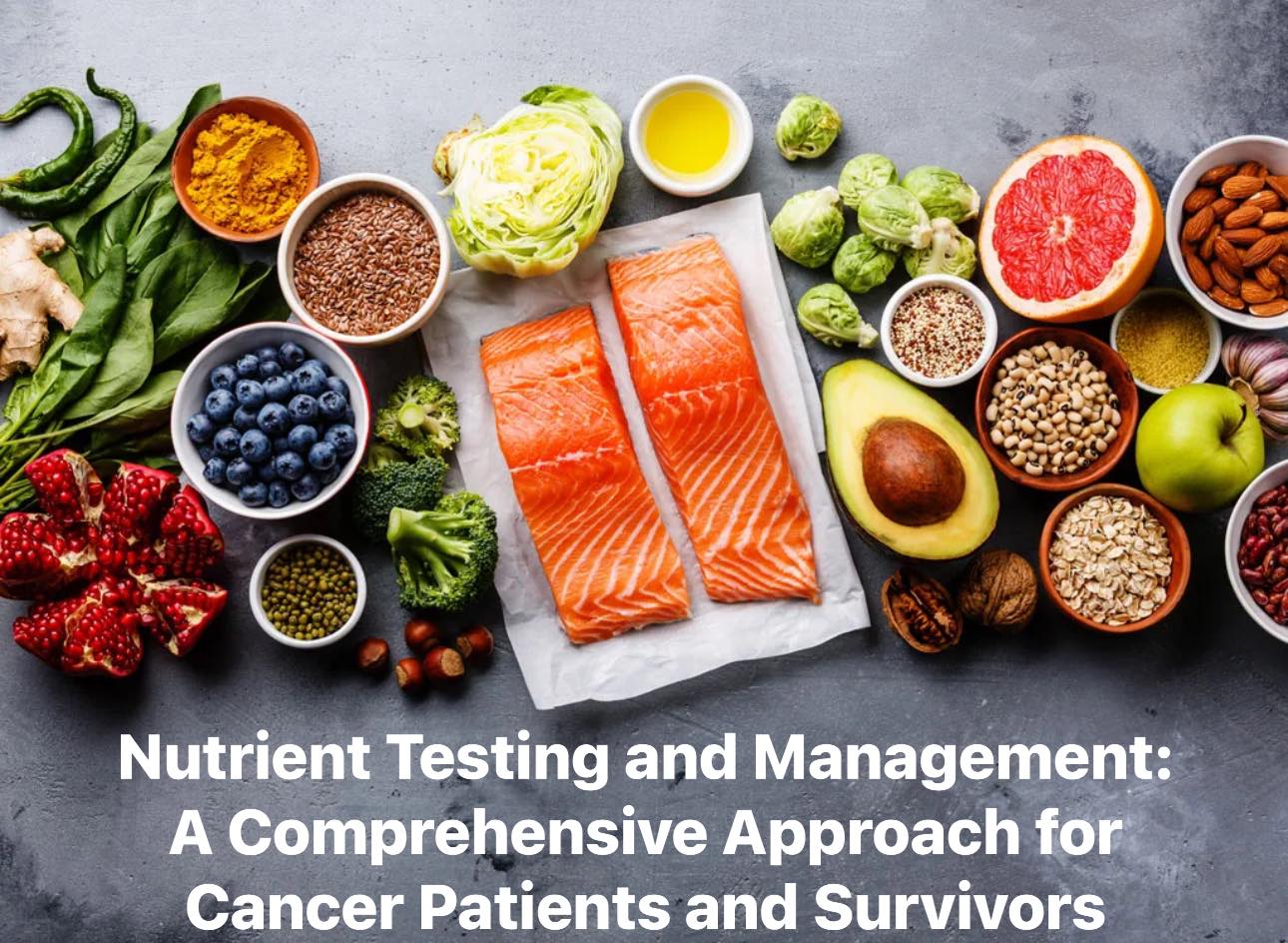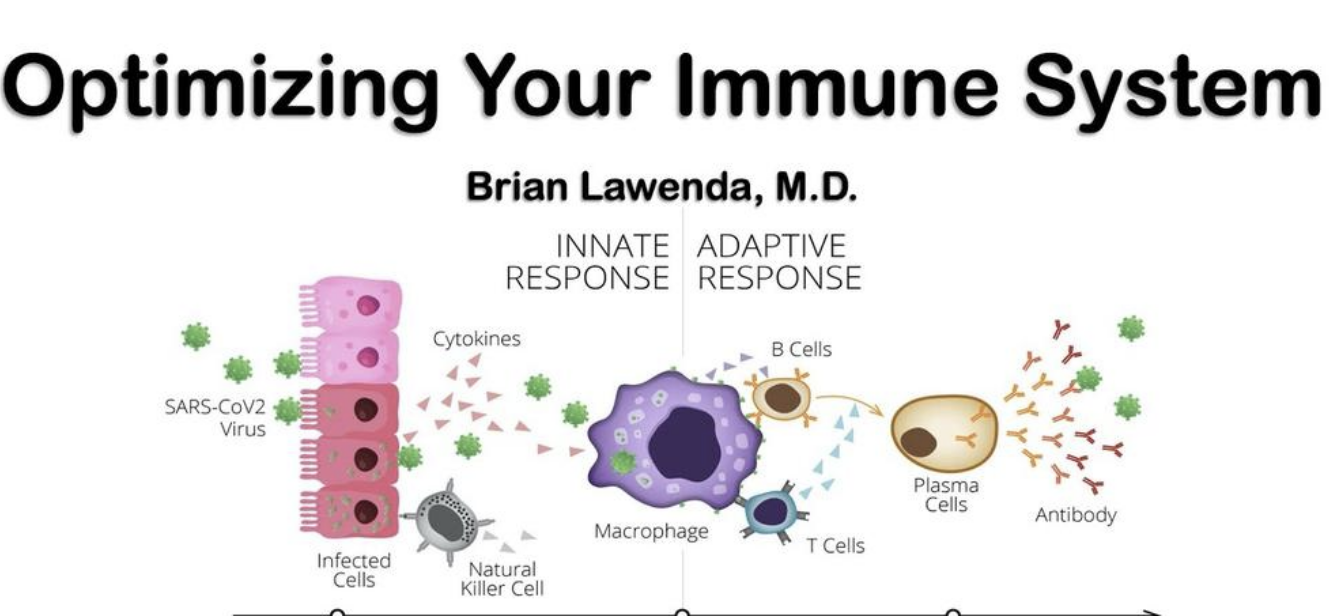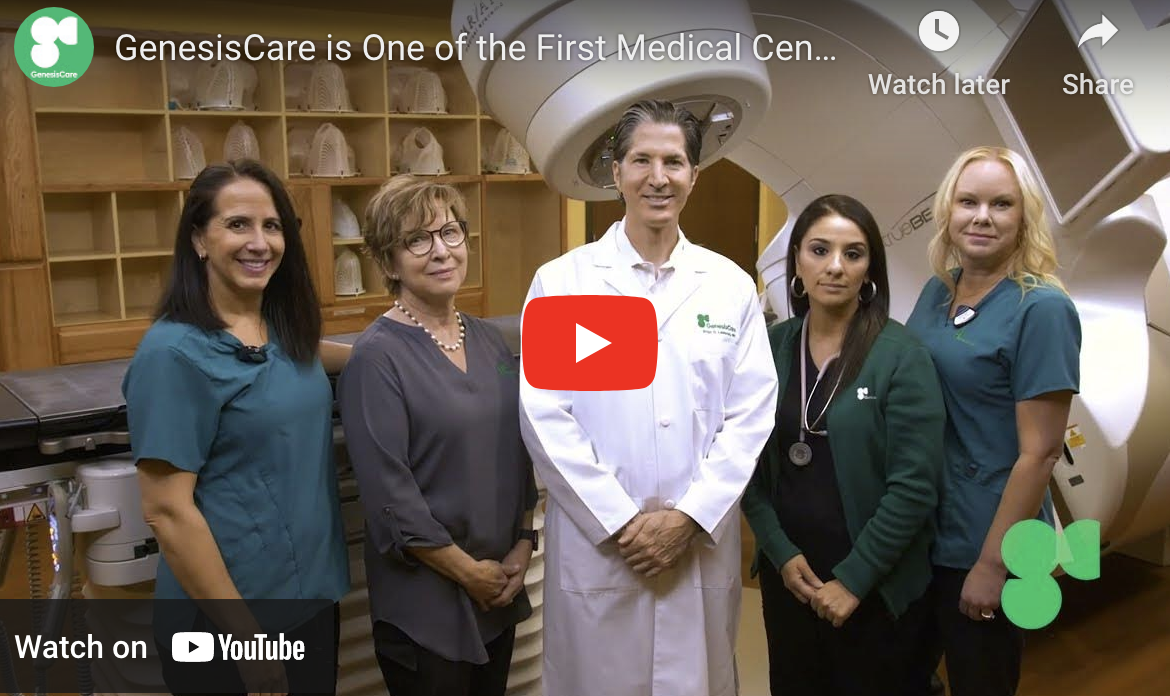Micronutrient Test + Vitamin D (Genova Diagnostics NutrEval)
For cancer patients and survivors, maintaining optimal health is a top priority. One critical yet often overlooked aspect of health is ensuring the right balance of nutrients.
Nutrient deficiencies can impact cancer growth and recurrence, making nutrient testing and management a vital part of an overall wellness strategy. By proactively addressing nutrient deficiencies and imbalances, you can support your body’s ability to fight cancer, potentially reduce the risk of recurrence, and promote overall wellness. With the proper guidance and a commitment to maintaining a healthy lifestyle, you can be better equipped to face the challenges that come with cancer and improve your long-term health outcomes.
This article will delve into eight connections between nutrient deficiencies and cancer and discuss the importance of nutrient testing and management for cancer patients and survivors.
1) Boosting Your Immune System:
A robust immune system is vital for cancer patients and survivors because it helps identify and eliminate cancer cells. Nutrients like vitamins A, C, D, and E and minerals such as zinc and selenium are essential for maintaining a healthy immune system. They support the production and function of immune cells, including T, B, and natural killer cells, which work together to target and eliminate abnormal cells, including cancer cells.
However, deficiencies in these nutrients can weaken the immune system, leaving the body more susceptible to infections and making it harder to fight off cancer cells. Regular nutrient testing can help identify deficiencies for cancer patients and survivors, allowing for targeted supplementation and dietary changes to bolster the immune system and potentially reduce the risk of cancer recurrence.
2) Combating Oxidative Stress and Inflammation:
Oxidative stress and inflammation play a significant role in the development and progression of cancer. Antioxidant-rich nutrients, such as vitamins C and E, selenium, and specific carotenoids, help neutralize free radicals and reduce oxidative stress, protecting cells from damage. When chronic or excessive, inflammation can also contribute to cancer development by promoting DNA damage, cellular changes, and an environment conducive to tumor growth.
By regularly testing and managing nutrient levels, cancer patients and survivors can ensure their bodies have the necessary antioxidants to combat oxidative stress and inflammation. Maintaining a diet rich in antioxidant-rich fruits and vegetables, and addressing any nutrient deficiencies through supplementation, can further support the body’s ability to fight against cancer growth and recurrence.
3) Supporting DNA Repair and Maintenance:
Proper DNA repair and maintenance are crucial for preventing mutations that can lead to cancer. Nutrients such as folate, vitamin B12, and zinc play an essential role in DNA synthesis, repair, and maintenance, helping to preserve the integrity of genetic material in cells. When these nutrients are deficient, the risk of DNA damage and mutations increases, which can contribute to cancer development.
For cancer patients and survivors, nutrient testing can help identify any deficiencies in these essential nutrients, allowing for targeted supplementation and dietary adjustments. Addressing these deficiencies can support your body’s ability to maintain healthy DNA, reducing the risk of cancer growth and recurrence. Maintaining a balanced diet that includes foods rich in these nutrients, such as leafy greens, whole grains, and lean proteins, can contribute to overall DNA health.
4) Promoting Healthy Cell Growth and Differentiation:
Vitamin A, D, and certain fatty acids regulate cell growth, differentiation, and apoptosis (programmed cell death). These processes are essential for maintaining healthy tissues and preventing uncontrolled cell growth, which can lead to cancer. For example, vitamin A is involved in cell differentiation, helping cells mature into specialized types. In contrast, vitamin D has been shown to induce apoptosis in cancer cells and inhibit their proliferation.
Deficiencies in these nutrients can disrupt normal cellular processes, potentially promoting cancer development. Regular nutrient testing can help cancer patients and survivors identify deficiencies and make targeted adjustments to their diet or supplementation. Ensuring an adequate intake of these nutrients can support proper cellular function and potentially reduce the risk of cancer growth and recurrence.
5) Balancing Hormone Levels:
Certain nutrients, such as omega-3 fatty acids and vitamin D, play a role in regulating hormone levels in the body. Balanced hormone levels are essential for overall health, and imbalances can contribute to developing hormone-dependent cancers, such as breast, ovarian, and prostate. Omega-3 fatty acids, for example, can help regulate the production of prostaglandins, hormone-like substances that can influence inflammation and cell growth. Vitamin D is also involved in hormone regulation and has been shown to have anti-cancer effects, particularly in hormone-sensitive cancers.
Regular nutrient testing and management can help cancer patients, and survivors maintain balanced hormone levels, potentially reducing the risk of hormone-related cancers. By identifying and addressing any deficiencies in these essential nutrients, you can support your body’s hormone balance, contributing to overall health and potentially reducing the risk of cancer recurrence. Incorporating foods rich in omega-3 fatty acids, such as fatty fish, walnuts, and flaxseeds, as well as vitamin D-rich foods like fatty fish, fortified dairy products, and egg yolks, can further support hormone regulation.
6) Supporting Epigenetic Health:
Epigenetics involve changes in gene expression that do not include alterations to the underlying DNA sequence. Nutrients like folate, vitamin B12, and choline play critical roles in these epigenetic processes, particularly in regulating DNA methylation, which can influence gene expression and contribute to cancer development and progression. Imbalances in these nutrients can lead to abnormal gene expression patterns, potentially increasing the risk of cancer growth and recurrence.
Regular nutrient testing can help cancer patients and survivors identify deficiencies or imbalances in these epigenetically essential nutrients, allowing for targeted dietary adjustments and supplementation. You can reduce the risk of cancer development and recurrence by supporting healthy gene expression through the proper nutrient intake. Consuming a balanced diet that includes foods rich in folate, vitamin B12, and choline, such as leafy greens, whole grains, lean meats, and eggs, can further promote epigenetic health.
7) Encouraging Healthy Angiogenesis and Metastasis:
Angiogenesis, the growth of new blood vessels, and metastasis, the spread of cancer to other parts of the body, are critical processes in cancer development and progression. Some nutrients, such as vitamin C and omega-3 fatty acids, can influence these processes, potentially impacting tumor growth and cancer progression. For example, vitamin C has been shown to help inhibit angiogenesis, while omega-3 fatty acids can reduce inflammation and suppress the formation of new blood vessels that support tumor growth.
Addressing these nutrient deficiencies may help reduce tumor growth and cancer progression. Regular nutrient testing can help cancer patients and survivors identify deficiencies and make targeted adjustments to their diet or supplementation. Ensuring an adequate intake of these nutrients can support the body’s ability to regulate angiogenesis and metastasis, potentially reducing the risk of cancer growth and recurrence.
8 ) Optimizing Energy Metabolism:
Proper cellular energy production and metabolism are essential for overall health and can affect cancer development and progression. B vitamins and certain minerals, such as magnesium, are crucial for cell energy production and metabolic processes. Imbalances or deficiencies in these nutrients can lead to altered energy balance, potentially promoting cancer development.
For cancer patients and survivors, regular nutrient testing can help identify deficiencies in these essential nutrients, allowing for targeted supplementation and dietary adjustments. By addressing these deficiencies, you can support healthy cellular energy metabolism, potentially reducing the risk of cancer growth and recurrence. A balanced diet with foods rich in B vitamins, such as whole grains, legumes, lean proteins, and magnesium-rich foods like leafy greens, nuts, and seeds, can contribute to overall energy metabolism and health.
Dr. Lawenda’s Bottom Line:
- In my oncology practice, the vast majority of patients I’ve tested have multiple nutrient deficiencies.
- Nutrient testing and management play a crucial role in cancer patients’ and survivors’ health and well-being. Understanding the connections between nutrient deficiencies and cancer growth and recurrence empowers you to take control of your health and actively support your body’s natural defenses against cancer.
- Regular nutrient testing, such as the comprehensive NutrEval® test, allows you to identify and address critical nutrient imbalances, which can significantly impact your health, particularly as a cancer patient or survivor. By receiving personalized recommendations and targeted supplementation, you can address deficiencies and imbalances that may contribute to cancer growth and recurrence.
- Collaborating with your healthcare provider in developing a nutrient management plan tailored to your unique health needs is essential. This plan should address deficiencies and emphasize the importance of a balanced, nutrient-rich diet that supports overall health and well-being. Integrating healthy lifestyle habits, such as regular exercise, stress management, and adequate sleep, can further enhance the benefits of nutrient management.
Due to our high practice volume, I’m only able to offer this testing for patients establishing for radiation treatment in our office. Call for more information: 509-987-1800. Testing is also available to anyone interested (with or without a cancer diagnosis) through my online service: https://ioeprogram.com/product/micronutrient-test-vitamin-d-genova-diagnostics-nutreval/?fbclid=IwAR3-UjdT6eu3uZ2S43fcy0WGr3QnU9tscXIwSHq5ktnAri4sDNv9GlseB2A


